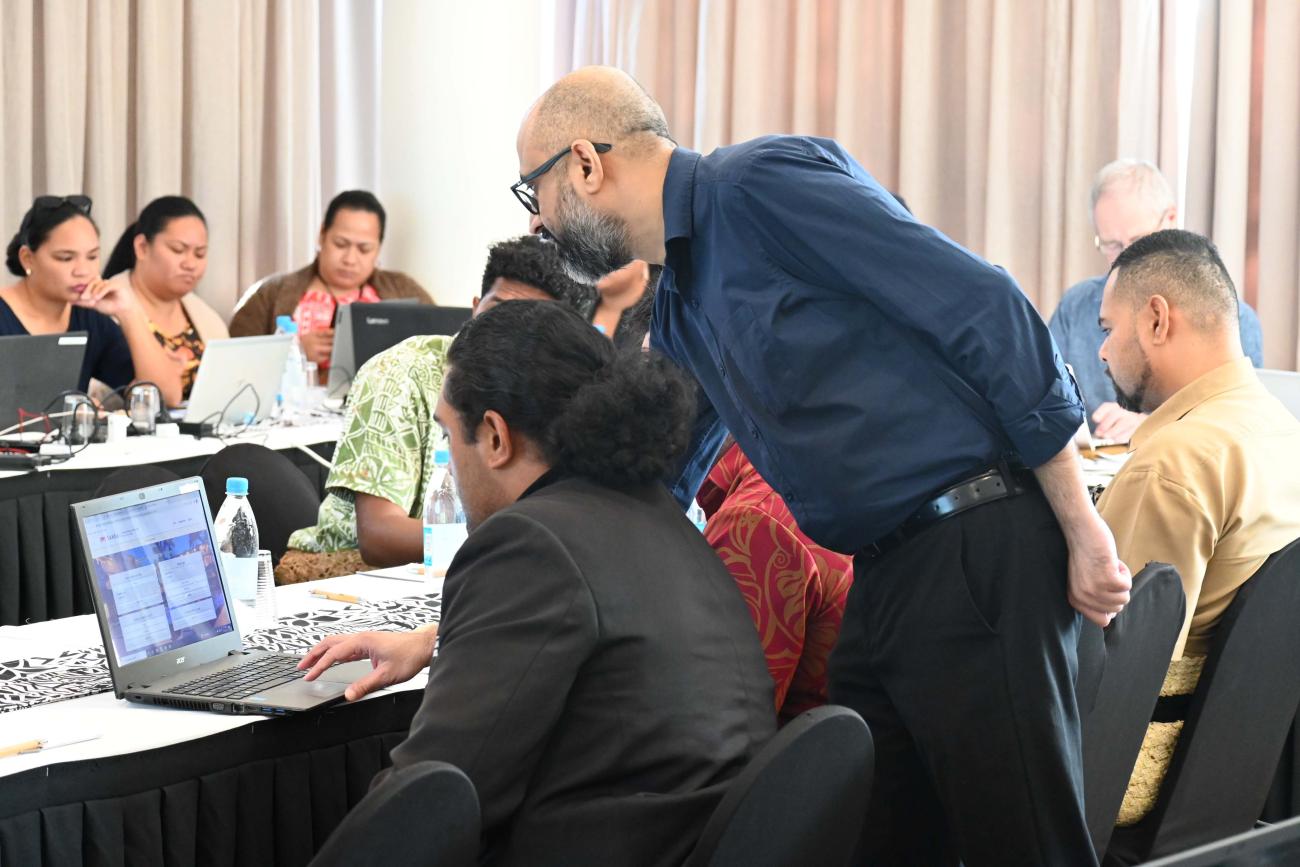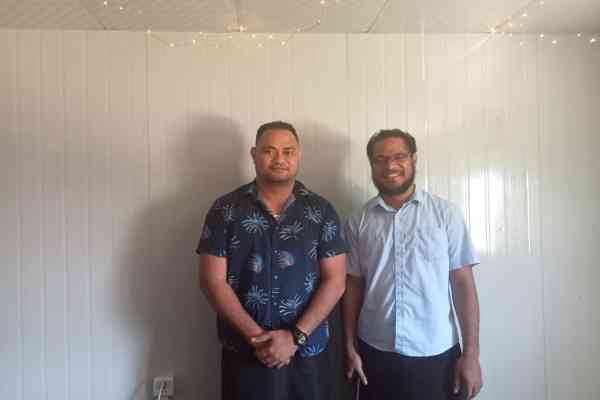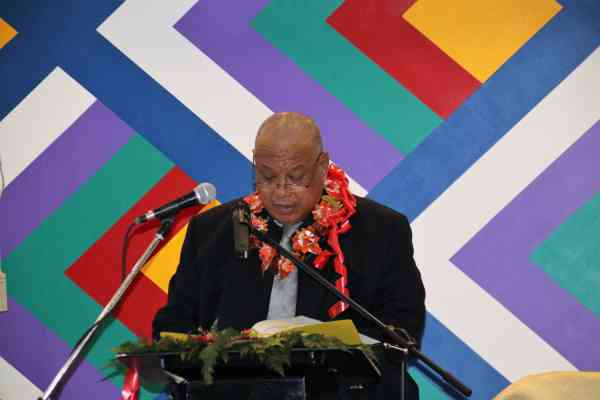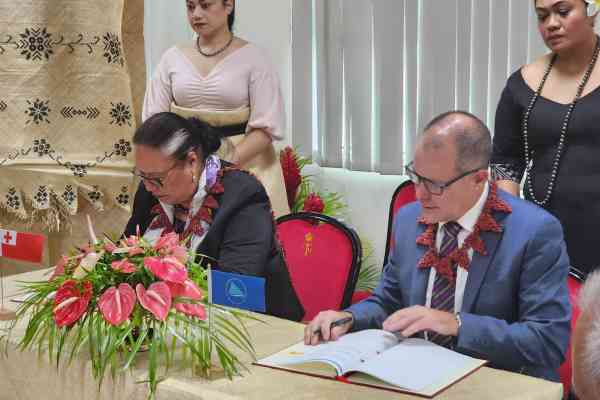This media release was originally published on the Kingdom of Tonga website.
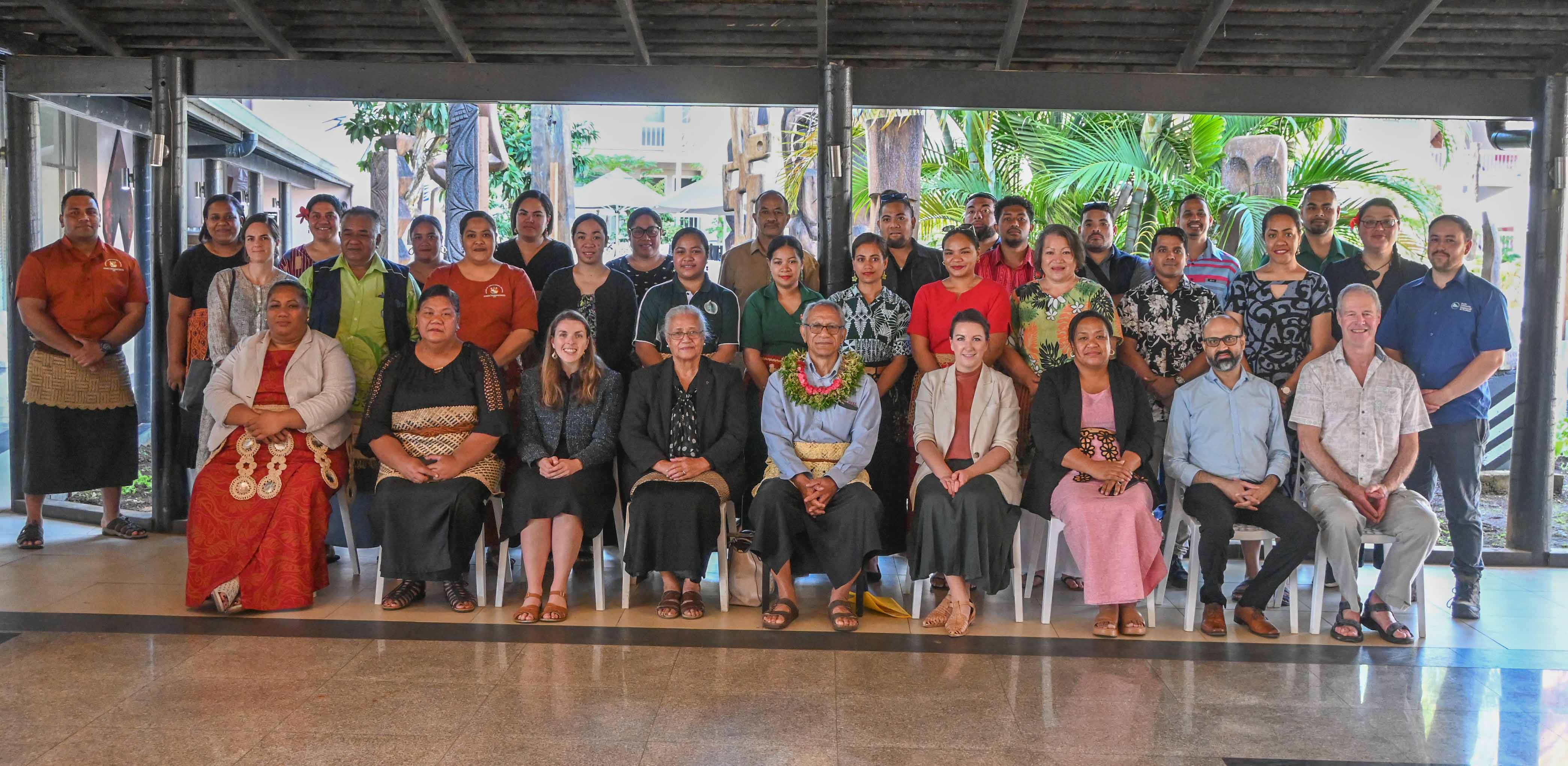
A week-long workshop on Digital Earth Pacific (DEP) – Tongatapu remote sensing Land Cover Assessment Skills Transfer (LCAST) is currently underway at Tanoa International Dateline Hotel, aimed to address the specific outcomes highlighted in the Needs Assessment Report by Tonga government officials in August, 2021.
The workshop brings together representatives from line ministries to solidify knowledge on one of the requirements emphasized by relevant stakeholders, to monitor land cover and land use changes, deforestation, mineral resources and other key changes that might have implications for water security, food security, economic activity and disaster risk reduction.
Programme Manager for the Pacific Centre for Renewable Energy and Energy Efficiency (PCREEE), Mr. Solomone Fifita said, “The Blue Pacific continent is made up of 98% ocean with only 2% land (30 million square kilometres over our planet). These large ocean states, like the Kingdom of Tonga, face unique challenges in managing natural resources and biodiversity, securing economies and livelihoods, and ensuring sustainable food systems.”
He said that in 2021, Tonga ranked third most at-risk in the World Risk Index among 181 countries encountering constant threats of earthquakes, sea level rise, tsunamis, volcanic eruptions, tropical cyclones, and other related climatic hazards.
“Better data and information are needed to ensure effective decision-making to drive policy actions across these areas, especially against the existential threat that climate change poses to our nation and the region.”
“Earth observation data is a unique source of reliable and measurable information that can help the Pacific people assess, mitigate and prevent negative outcomes (such as impact of disasters, rising sea temperatures, challenges around food and water security) as well as explore new opportunities for social and economic development through improved efficiencies.”
“Earth observation technologies that utilize the global satellite network have only recently become available for large-scale open use, and this expanding sector is producing significant financial benefits. Currently, the sector is valued at USD 327 billion but this is expected to increase to USD 1.35 trillion by 2030.”
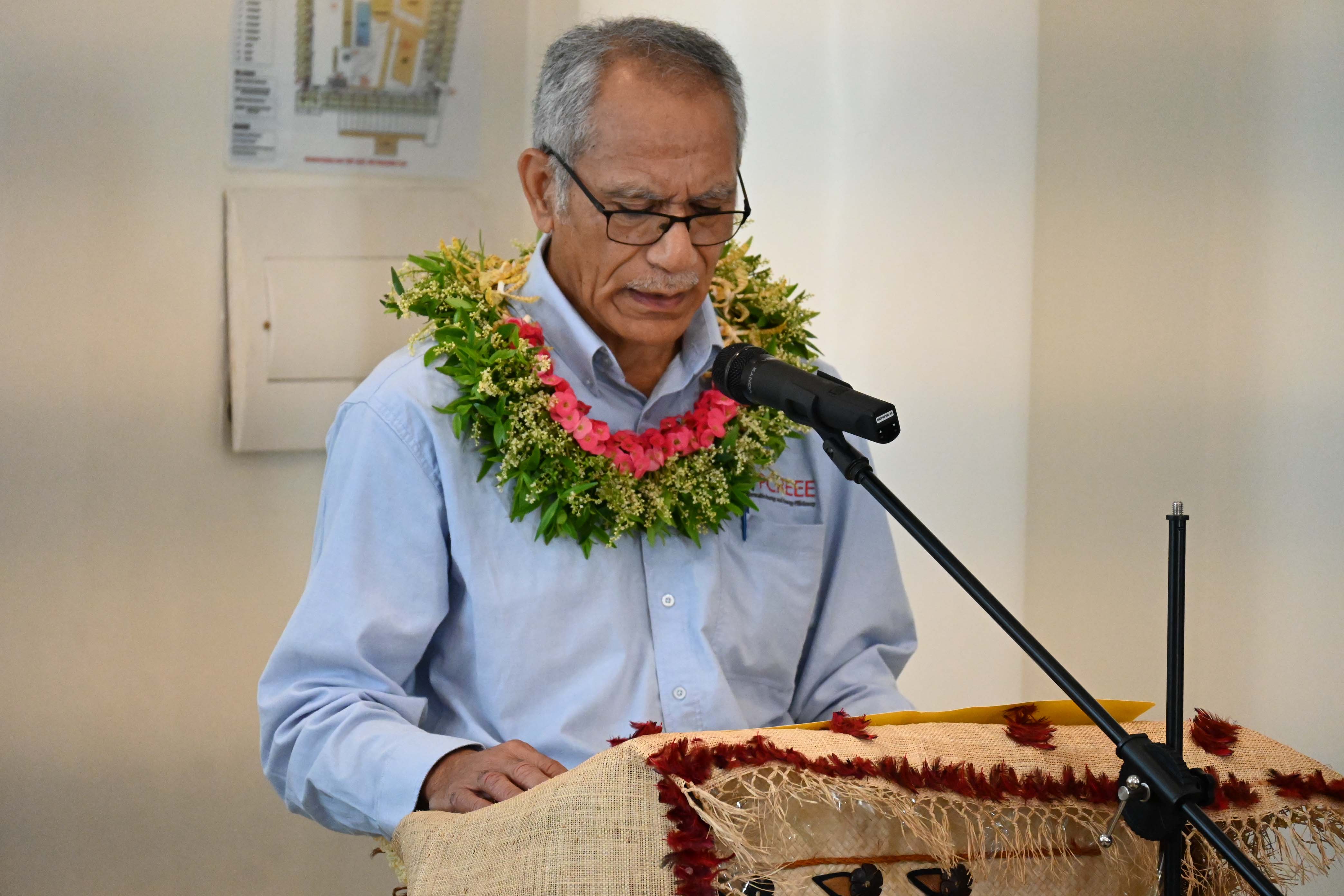
Mr. Fifita also said that a series of consultative dialogues was established by the Group of Earth Observations (GEO) in 2018 and 2019, based on improving the use of earth observation technology for national and regional sustainable development.
“The Pacific Talanoa during Group of Earth Observation (GEO) Week stressed the sovereignty of Pacific Island governments as paramount to guide all aspects around Earth Observation in the Pacific.”
Tonga is the only Pacific island country to be a member of the Group of Earth Observations, consists of membership across 114 countries.
“The Talanoa further stated that Pacific ownership be the most component of any Earth Observation (EO) initiative; and that coordination and genuine partnerships with Pacific Island governments is fundamental to ensure and enhance sustainability.”
During the recent pandemic years, the Pacific Community (SPC) conducted wide-ranging consultations with member countries and partners to identify urgent needs and solutions that can be implemented using the Earth Observation (EO) data to resolve the region’s unique challenges.
“There was a clear demand demonstrated by countries such as Vanuatu, the Republic of Marshal Islands, Fiji and Tonga for earth observations solutions for Agriculture, Climate Change, Conservation, Disaster Management, Urban Development and Land Use Planning, Geology and Mines, Fisheries Management and Water Resources Management.”
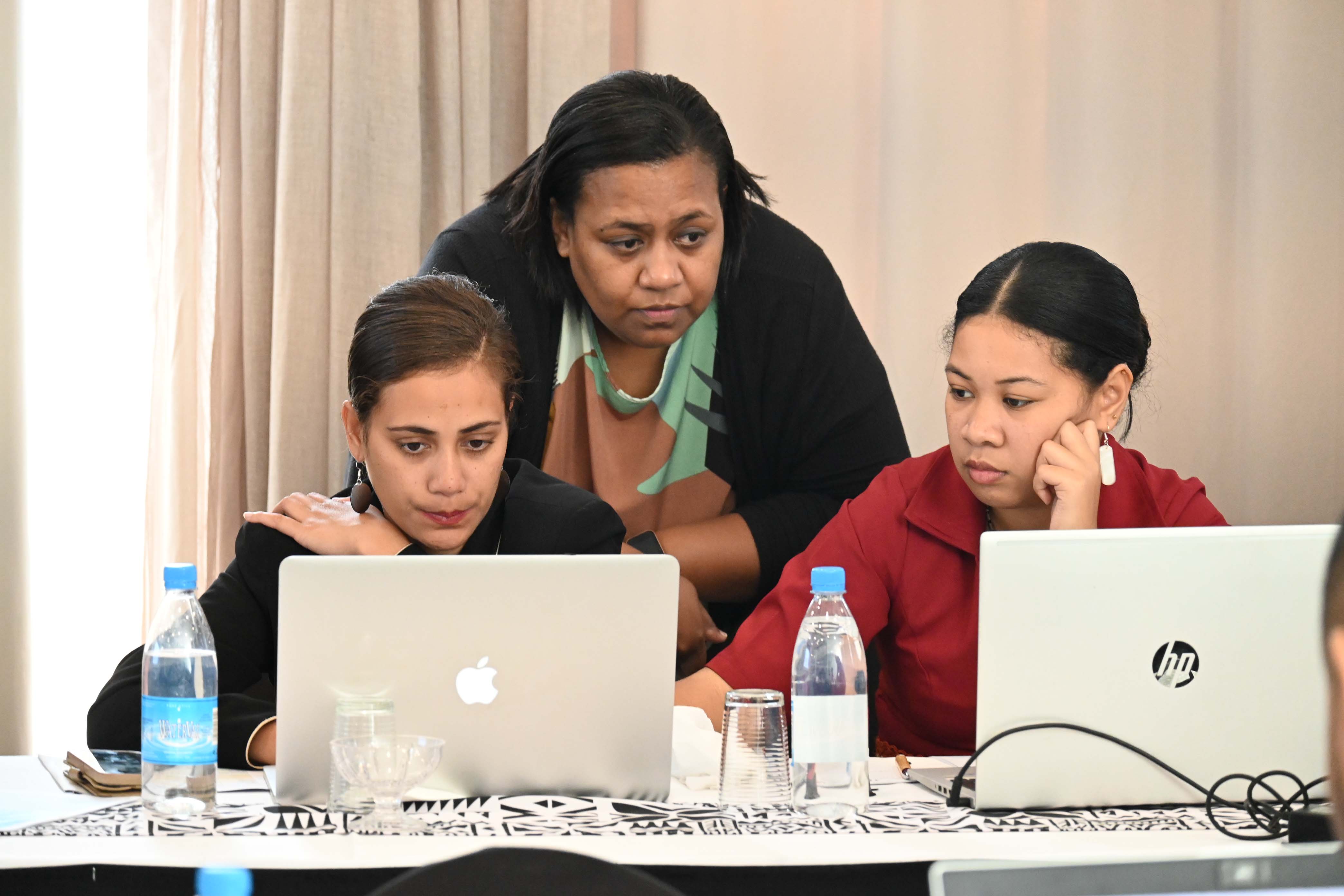
“SPC has since embarked on the Digital Earth Pacific initiative – a public good, operational earth observation system, that will act on decades of space-bourne data, incorporate the very latest overpass monitoring from satellites, and enable decision-ready products at an unprecedented scale in the region.”
Mr. Fifita stressed the need for participants to fully capitalize from this week-long event and learn more about this highly important field of earth observations with regards to solving challenges in their respective work areas.
This is the first Digital Earth Pacific (DEP) Land Cover Assessment Skills Transfer (LCAST) workshop hosted by SPC in Tonga.
Issued by the: Ministry of MEIDECC
